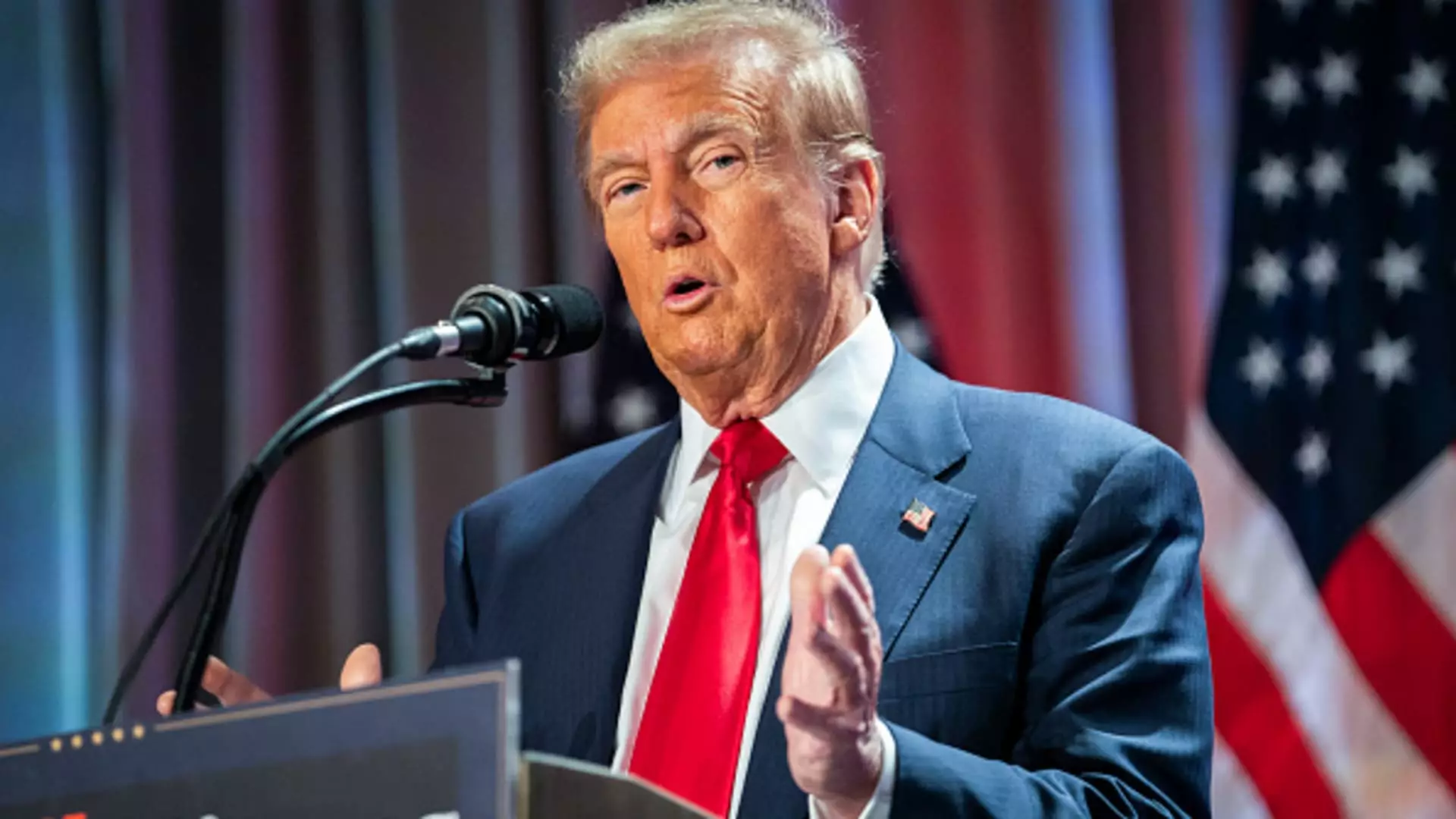The investment landscape often shifts dramatically due to political developments, and the anticipated tariff agenda of President-elect Donald Trump presents a distinct challenge for money managers. John Davi, CEO and Chief Investment Officer of Astoria Portfolio Advisors, has been vocal about his concerns regarding the potential inflationary effects of these policies. As financial markets adapt to new government strategies, Davi emphasizes the importance of prudent investment selection to navigate the uncertainties ahead.
In an interview with CNBC’s “ETF Edge,” Davi outlined a pronounced preference for small-cap industrials over their large-cap counterparts. His rationale lies in the expectation that the incoming administration’s policies will foster a more favorable environment for smaller domestic companies. These small-cap industrials typically resonate better with pro-growth initiatives, potentially benefitting from tariffs that may favor local production. Since the election results, the positive sentiment towards small-cap stocks has been evidenced by the Russell 2000 index’s 4% increase, indicating a market alignment with Davi’s strategy.
Davi’s focus on small firms is rooted in both sentiment and fundamentals. With the anticipated support for domestic industry, small-caps may be better positioned to absorb changes in the economic landscape. This foresight could yield richer returns in a regulatory environment that favors local businesses. The investment community seems to have a similar outlook, aligning their strategies with the potential for growth among small-cap stocks, as seen through recent market movements.
Davi also highlights a strong preference for domestic investments, disregarding international exposure amid tariff-related uncertainties. He believes this focus is prudent, especially as the political narrative continues to evolve over the next few years. With an administration potentially holding power for a considerable period, Davi’s strategy reflects a conscious choice to prioritize U.S.-based opportunities. His firm, managing assets worth $1.9 billion, indicates confidence in a domestic-centric approach, particularly leading up to the anticipated midterm elections, which could alter the legislative landscape.
However, this bullish outlook comes with cautionary notes regarding fixed-income investments. Davi’s concerns revolve around the growing U.S. budget deficit and the impact it may have on bond yields. The significant uptick in the benchmark 10-year Treasury yield, spiking 3% since the election, amplifies the risks associated with fixed income, placing traditional bond investments in a precarious position. Davi’s advice to be cautious with bond holdings underscores the need for adaptive strategies in the current economic climate.
John Davi’s insights provide a piercing analysis of the current investment challenges posed by the incoming Trump administration’s policies. His commitment to small-cap industrial investments reflects a broader belief that these entities stand to benefit from favorable domestic policies, while his avoidance of fixed income speaks to the impending risks associated with rising yields and fiscal imbalances. As investors brace for a potentially transformative economic environment, strategies rooted in careful selection and domestic focus may emerge as the key to navigating the complexities of financial markets in the coming years.

